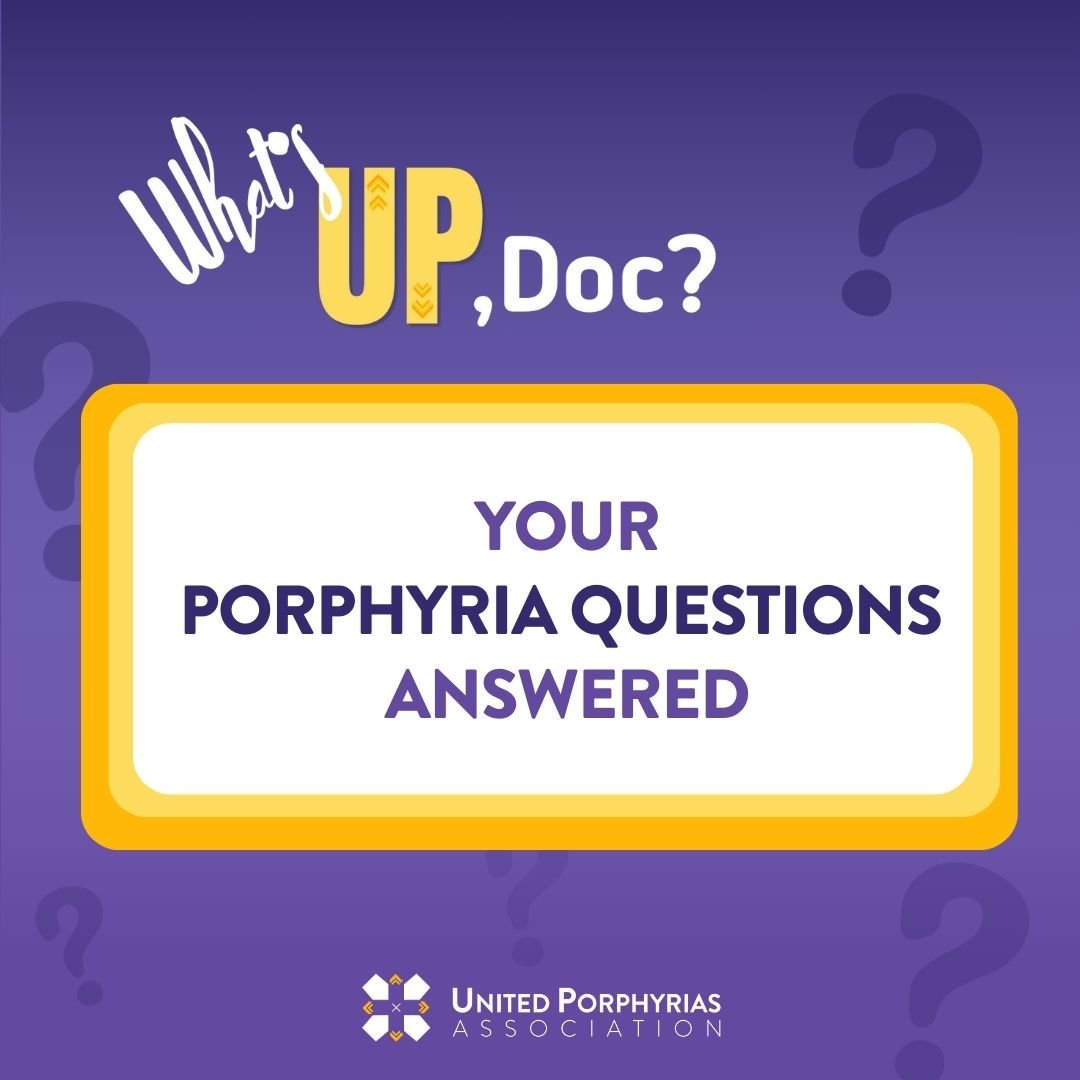EPP and iron supplements
What's UP Doc? Is a regular column where we feature a patient question along with a response from a member of the UPA Scientific Advisory Board.
A lot of EPP patients are confused about taking iron supplements. What would you suggest?
This question was sent with the request of a response from Amy Dickey, MD
A big reason that EPP patients are confused about this topic is that doctors are confused about this too. This is a hard question, and there are experts who have different opinions about this. Some studies point in one direction, and others point in the opposite. The answer also depends on each patient’s individual clinical situation. Most importantly, the answer depends on if you have typical EPP that is caused by genetic mutations in the enzyme FECH or if you have X-linked protoporphyria (XLP) caused by a genetic mutation in a different enzyme ALAS2. Both EPP and XLP patients have the same symptoms and have same/similar blood test findings. The main way to tell them apart is by genetic testing.
Iron supplements are helpful for patients with XLP who have iron-deficiency and/or anemia. This is because iron can actually make the problematic enzyme ALAS2 more normal in people with XLP. For patients with typical EPP, though, the answer is more complicated and confusing. On the one hand, iron could tell your body to make more red blood cells, and this increase will also increase protoporphyrin, which is the substance in the blood that causes painful light sensitivity in EPP. We want to avoid that. While this happens to some extent, it seems that the protoporphyrin will go back to baseline after some time. On the other hand, iron could help get of rid of some protoporphyrin by turning it into heme. That’s actually what the enzyme FECH does; it puts iron into protoporphyrin making heme. A higher percentage of EPP patients have iron deficiency than in the general population.
However, it’s not clear why, and it’s also not clear if and to what extent this is causing a problem. There are certainly other things that can cause anemia and iron deficiency in patients with EPP, such as blood loss from something else. Iron deficiency and anemia can make people feel really bad. It can make people very tired and short of breath, and it can even have negative effects on the heart, skin, hair, and mood. Because of that, it’s recommended to give iron supplements to people with EPP if there is iron deficiency, anemia, and symptoms from it. If people have really high protoporphyrin and signs of liver damage, though, treating iron deficiency is likely more risk than it’s worth. Exactly where the risk-benefit line is for treating iron deficiency is not too clear, and each patient’s situation is different. It’s important to talk with your doctor about this. Iron isn’t always bad or always good for patients with EPP. For what it’s worth, I have EPP and take iron supplements myself, so I do think iron supplements have some role in EPP care.
Thank you to Dr. Dickey for this What's UP Doc? answer! Do you have a question for a porphyria expert? Send it to info@porphyria.org.



